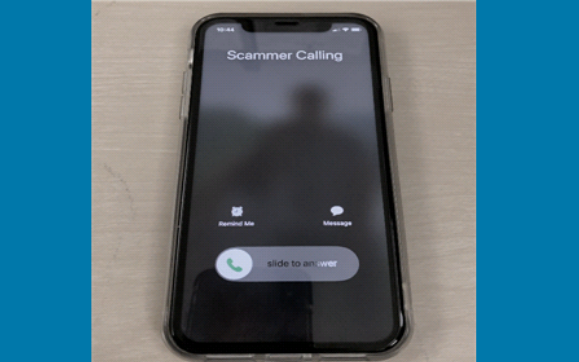Justice Center News
The Justice Center News blog features our advocacy on issues affecting low-income New Yorkers today and the latest CBJC happenings. For press releases, click here. For publications, click here.

Beware of Phone Scams this Holiday Season!
by Ramona Morel, Esq. December 19, 2019
Thousands of people, especially seniors, have fallen victims to phone scams and have been defrauded of their money. One particular scam, the impostor scam, happens when scammers pretend to be a business, a family member or friend in need, or impersonate representatives of government agencies such as the IRS or the Social Security Administration, in order to gain financial and personal identifying information from the victim. These scammers often use scare tactics to get people to call them back. For example, in the last couple of weeks, some of our clients received calls from impostors stating that their social security numbers were suspended because of suspicious criminal activity. The message went on to state that they needed to call a specific number to resolve the issue before it was referred to court. Luckily for our clients, we were able to prevent them from being conned by informing them that such calls were scams.
According to the Federal Trade Commission (FTC), impostor scams “top the list of reported frauds.” While these types of scams can be frustrating and even scary, it is important to recognize them in order to avoid being defrauded. Here are a few things to keep in mind:
- Governmental agencies, such as the IRS or the Social Security Administration, will never call or email you asking for your financial information.
- Never give your social security number, date of birth, bank account numbers or other identifying information to anyone calling, emailing or texting you.
- Scammers will usually ask that you make some form of payment or send them money or gift cards. Do not talk to people you don’t know even if they call back repeatedly and use your first name.
- If you receive a call stating you owe the IRS or a state taxing authority, first contact the agency to verify that information before making payment arrangements. The IRS usually first contacts tax payers about tax debts by mail.
- When in doubt:
- Do not pick up any calls you do not recognize. It is always best to let the call go to voicemail to avoid accidently picking up a scammer’s call.
- If you picked up an unsolicited phone call from a scammer, hang up the phone right away.
- Do not click on any suspicious links sent via email or text.
- If you have been a victim of an impostor or other scam, report it immediately to the FTC and the governmental agency the scammer claimed to be from. Be prepared to provide the FTC with the following:
- date and time of the call;
- name of the government agency the imposter used;
- phone number the call came from; and
- any other details from the call.
Where to Report Scams
To report any type of scam, contact the Federal Trade Commission:
Website: https://www.ftccomplaintassistant.gov/#crnt&panel1-1
Phone: (800) FTC-HELP or (800) 382-4357
To report a Tax Scam, contact the Treasury Inspector General for Tax Administration (TIGTA):
Website: https://www.treasury.gov/tigta/contact_report_scam.shtml
Phone: (800) 366-4484.
Report Social Security impostor scam to the Social Security Administration:
Website: https://secure.ssa.gov/ipff/home.
Phone: (800) 772-1213
For list of other types of scams and ways to prevent being conned, go to: https://www1.nyc.gov/assets/dca/downloads/pdf/consumers/10WorstEverydayScams.pdf
Recent posts
-
April 19, 2024
Statement of the Executive Director of the City Bar Justice Center Opposing IOLA Diversion and the Undermining of Complementary Public Service Programs
The City Bar Justice Center strongly opposes the inclusion in the FY2024-25 New York State budget of an eleventh-h...
Read more -
April 18, 2024
Corporate Transparency Act: What Small Businesses Need to Know
This article will break down the Corporate Transparency Act (CTA), which went into effect on January 1, 2024, that...
Read more -
April 9, 2024
The City Bar Justice Center’s 2024 Gala Celebrates Pro Bono Around the World, Raising Nearly $1.2 Million to Support New Yorkers in Need
On Wednesday, April 3, 2024, the City Bar Justice Center held its 19th Annual Gala, Pro Bono for Our World, at the...
Read more














